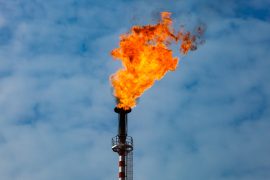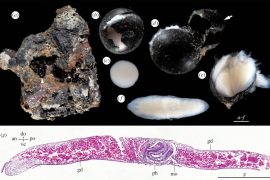
Global trade is fueling a dangerous rise in methane emissions
Methane might not grab headlines the way carbon dioxide does, but it punches way above its weight in the climate crisis. It’s warming the planet fast – and unlike CO₂, it doesn’t stick around for centuries.
That means cutting methane emissions now could cool things off faster than anything else on the table.
New research shows that the world’s methane emissions continue to rise steadily, and global trade accounts for nearly one-third of them. This is not good news. Worse is that the largest increases are occurring in the developing world, particularly in Asia and the Pacific.
Those places are growing rapidly – more factories, more agriculture, more energy generation – all of which drive methane emissions.
What’s making it worse
The report tracks methane emissions across 164 countries and 120 economic sectors from 1990 to 2023. It’s the most detailed analysis of its kind.
The findings show that while developed countries have figured out how to grow their economies and lower methane output, developing regions haven’t had the same success. Their methane emissions are climbing.
Industrial growth in these countries is booming, especially in places with limited access to cleaner technologies. That means the gains made by wealthier nations are being canceled out by rising emissions elsewhere.
“Global trade is responsible for approximately 30% of methane emissions,” noted the researchers.
As trade patterns shift – especially between developing countries in what’s called South–South trade – more emissions are coming from places that don’t yet have the infrastructure or regulation to manage them well.
Why methane emissions are a big deal
Methane doesn’t last as long in the air as carbon dioxide, but it’s about 80 times more powerful at trapping heat over a 20-year period. It’s also responsible for about 30% of global warming since the industrial era began.
And it doesn’t just heat up the planet. Methane also contributes to air pollution that causes around 1 million premature deaths every year.
Because it breaks down more quickly than CO₂, slashing methane emissions could help stabilize global temperatures within years – not decades.
“Methane has a short atmospheric lifespan, which means reductions today can have an immediate impact,” said Professor Yuli Shan from the University of Birmingham, the study’s lead author.
“As we approach COP30, our findings underscore the need for coordinated global action, especially in developing regions where emissions are rising fastest.”
What causes methane emissions
Some of the biggest sources of methane are familiar: oil and gas drilling, livestock, fertilizer production, and waste.
But the study points out one sector in particular that needs more attention: fertilizer. Its manufacture produces a lot of methane emissions, and the demand is only growing.
There are ways to cut these emissions. The study suggests advanced leak detection in oil and gas operations, better feed for livestock to reduce emissions from digestion, and smarter waste management systems.
The research also points to the role of consumers. Choosing to eat less red meat, for example, can reduce demand from high-emission industries.
“This study provides a roadmap for policymakers to integrate methane into national climate strategies,” said co-author Professor Klaus Hubacek from the University of Groningen. “It’s not just about where emissions occur, but why – and that requires looking at the entire supply chain.”
Technology is working
Despite the increase in total methane emissions, there has been an improvement. Between 1998 and 2023, the global average methane emission coefficient fell by almost 67 percent.
In other words, it takes a great deal less methane to generate the same economic activity than it did 25 years ago.
Developed nations have demonstrated that it is possible to expand the economy while reducing methane emissions simultaneously. They’ve done it through cleaner production methods and smarter energy use. But without help, developing nations can’t easily follow that path.
The bottom line
The climate fight is already hard enough. Allowing methane to continue rising makes it harder.
This new research makes one thing clear: cutting methane – especially in fast-growing regions – can have a quick and powerful effect on the planet’s temperature and public health.
Methane isn’t just an environmental concern – it’s tied to our economy, our health, and our climate future. Acting now could slow warming quickly and give the world breathing room as longer-term CO₂ strategies take hold.
The full study was published in the journal Nature Communications.
—–
Like what you read? Subscribe to our newsletter for engaging articles, exclusive content, and the latest updates.
Check us out on EarthSnap, a free app brought to you by Eric Ralls and Earth.com.
—–
News coming your way













